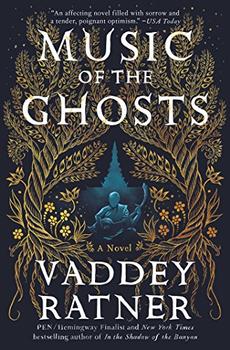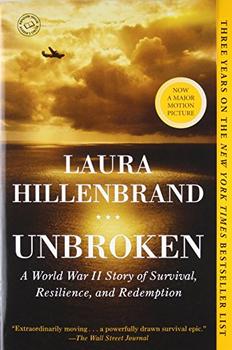 I was recently participating in BookBrowse's online book discussion for Vaddey Ratner's excellent novel, Music of the Ghosts, in which the main characters are survivors of the Khmer Rouge. Needless to say, since it discusses the horrors Cambodian citizens endured during the genocide, it contains some pretty intense passages, and one of my fellow posters mentioned finding the subject matter "difficult" and therefore hard to read about. This comment prompted an offline discussion with others regarding books that cover topics that we generally don't want to dwell on, specifically humanity's ability to be unimaginably cruel to others or indifferent to their suffering. The question arose: As readers, do we have an obligation to history to read "difficult" books?
I was recently participating in BookBrowse's online book discussion for Vaddey Ratner's excellent novel, Music of the Ghosts, in which the main characters are survivors of the Khmer Rouge. Needless to say, since it discusses the horrors Cambodian citizens endured during the genocide, it contains some pretty intense passages, and one of my fellow posters mentioned finding the subject matter "difficult" and therefore hard to read about. This comment prompted an offline discussion with others regarding books that cover topics that we generally don't want to dwell on, specifically humanity's ability to be unimaginably cruel to others or indifferent to their suffering. The question arose: As readers, do we have an obligation to history to read "difficult" books?
I'd like to start by stating in no uncertain terms that I am not a ghoul; I can't remember the last time I read a thriller featuring a mass murderer or anything like that. But I confess I do find that I'm drawn to history and historical fiction books about various wars and genocides, prison camps and other injustices throughout history, particularly those that have occurred throughout the 20th and 21st century.
I'm not sure I can say that I necessarily enjoyed reading these books – how can one enjoy reading about the suffering of others? But I do feel that these books have enriched my life, although I find it hard to pinpoint exactly what I mean by that. I guess I feel, first, that they reveal a part of history (sometimes history about which I was unaware) and, as such, are important to my understanding of myself and the world around me. I'd like to hope that by learning about these events that I might see the next one coming and somehow help avoid it. I also think that reading about the experiences of others helps me have empathy for diverse populations - what they've survived and how they've managed to overcome horrific circumstances - and to perhaps learn from their courage. It also puts my own petty problems into perspective and helps me appreciate what others have sacrificed to give me the life I have.
 I feel that I owe it to myself to read such books simply because I want to know. But that's just me. Years ago I gave my friend Bob a copy of Unbroken by Laura Hillenbrand, a non-fiction account about a young man who is captured by Japanese soldiers during WWII and exposed to torture before being freed. I thought he'd enjoy it, because Bob had fought in WWII; to my surprise his response was, "Why would anyone want to read about something like that?" I struggled to answer him; my response of, "Well, it's history..." seemed inadequate. It really brought home to me that others may not share my enthusiasm for this type of book, my feeling that they're important and should be read.
I feel that I owe it to myself to read such books simply because I want to know. But that's just me. Years ago I gave my friend Bob a copy of Unbroken by Laura Hillenbrand, a non-fiction account about a young man who is captured by Japanese soldiers during WWII and exposed to torture before being freed. I thought he'd enjoy it, because Bob had fought in WWII; to my surprise his response was, "Why would anyone want to read about something like that?" I struggled to answer him; my response of, "Well, it's history..." seemed inadequate. It really brought home to me that others may not share my enthusiasm for this type of book, my feeling that they're important and should be read.
And on reflection, I can see his point; I don't go to war movies because I watch films for entertainment and they upset me too much for me to find them entertaining. I've never seen films such as Saving Private Ryan or Schindler's List, for example, because they're just too real. I imagine that readers who find some novels "difficult" are in the same boat, reading primarily for entertainment – a way to escape the real-life horrors that we're exposed to and, in some cases, wishing to avoid reading of experiences that maybe too close to home. And perhaps we need escapist novels more than ever as an antidote to the bad news that constantly threatens to overwhelm us.
What's your take on this topic? Are you drawn to books that include difficult subject matter? If so, why? Do you try to avoid them? I'm very curious about what others think about this, so post away!
-- Kim Kovacs